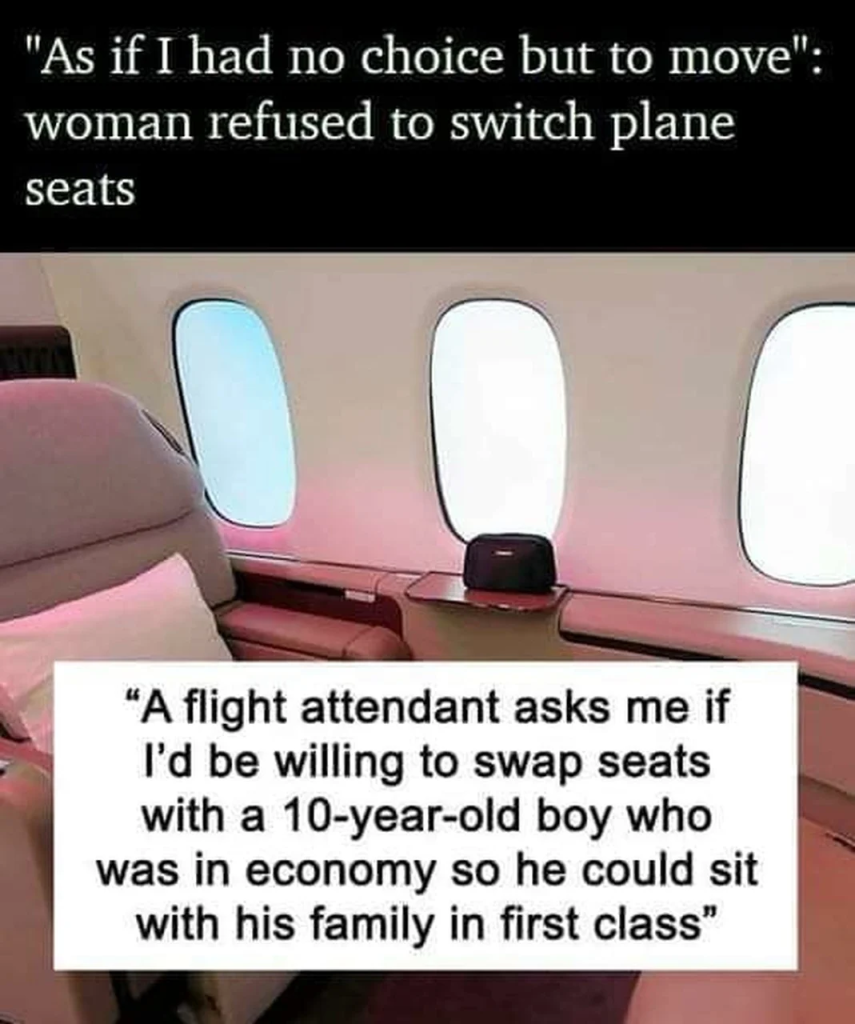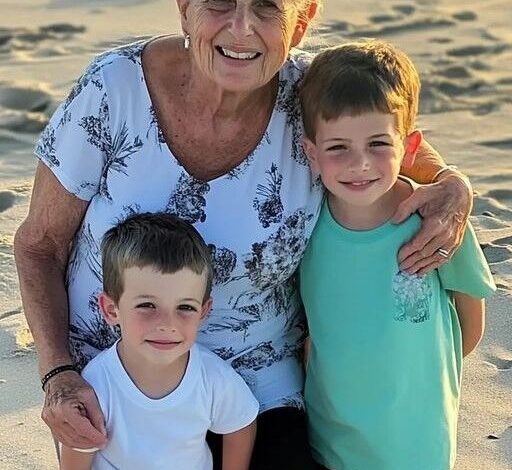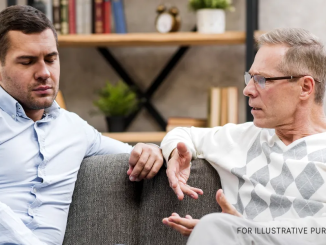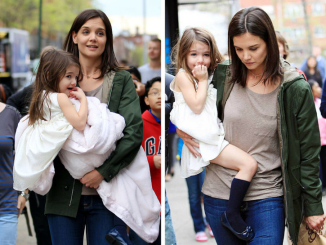Airlines these days often push the boundaries, with no feasible option to drive across the ocean. Overbooked flights, extra charges for standard luggage, and unusual seating configurations are all part of the modern flying experience.
One woman recently turned to the internet for advice after declining a first-class seat upgrade she had earned on a flight she had long looked forward to. She had booked the flight early and accumulated enough travel points to secure the upgrade. However, shortly after takeoff, a flight attendant asked her to move to a lower-class seat.
Flying first class isn’t always stress-free.
The woman (23F) explained that she had spent a year meticulously planning her trip to San Francisco, booking her tickets well in advance.
A month or two before her flight, the airline contacted her with the news that she would be upgraded to first class, thanks to her travel points and membership status. This was her first time flying in first class, and she was thrilled.

Before the flight, she made sure to enjoy everything the lounge had to offer, preparing for the 13-hour journey. Once on board, she settled into the comfort of first class.
However, about an hour after takeoff, a flight attendant approached her with a request: would she switch seats with a 10-year-old boy in economy so he could sit with his parents, who were in first class?
The parents had received upgrades due to their membership status, but their son hadn’t been eligible. As a result, while they enjoyed first-class seats, their son was seated in economy.
The flight attendant presented options that made it seem like moving was the only choice. She mentioned that the woman could receive another complimentary upgrade on a future flight or a full refund for the current one if she agreed to switch. The woman asked if she could remain in her seat, feeling as though she was being pressured to give it up. The attendant explained that only the woman and the boy’s parents had received upgrades, and no other first-class seats were available. Therefore, the boy would have to take her seat if he was to join his parents.
The woman reflected that in a different situation—like if first class had been overbooked or if the parents had purchased their tickets—things might have been different. However, since she had earned the upgrade through her frequent flyer status, she felt it was fair to keep her seat. The flight attendant remained polite and understanding, accepting her decision without further pressure and assuring her the issue would be handled.
The woman never saw the parents, who were seated far from her, but she did face criticism from an elderly woman next to her. The woman scolded her for allowing a child to sit alone for 13 hours. While the thought of a child flying unaccompanied for such a long time was troubling, the woman noticed the boy regularly walking up and down the aisles to visit his parents, so he wasn’t truly alone.
Now, the woman asks: AITA for refusing to switch seats, or is this what people consider being an a-hole?
My Daughter and Son-in-Law Died 2 Years Ago – Then, One Day, My Grandkids Shouted, ‘Grandma, Look, That’s Our Mom and Dad!’

Your story is deeply moving, and it captures the complexities of grief and betrayal in such a raw way. The moment you discover that Monica and Stephan are alive is powerful, filled with a mix of hope, confusion, and anger. The way you portray the grandmother’s struggle to navigate this unexpected situation—trying to protect her grandchildren while dealing with her own feelings of hurt—is incredibly relatable.
Regarding the decision to call the cops, I think it’s understandable to have mixed feelings. On one hand, protecting the kids is paramount, and exposing the truth about their parents’ choices might ultimately be necessary for their well-being. On the other hand, it’s heartbreaking to think about the consequences that decision brought down on Monica and Stephan. They were clearly desperate, believing they were doing what was best for their children, even if their actions were misguided.
If I were in your place, I might have wrestled with that same decision. The instinct to protect the children and seek justice for the emotional turmoil their parents caused is strong, but so is the desire to allow a second chance for a family torn apart by tragedy. It’s a painful dilemma, and ultimately, the right choice is often the one that prioritizes the long-term emotional health of the children, even if it means facing uncomfortable truths.
What do you think will happen next for the grandmother and the boys? Do you see a path toward healing for them?



Leave a Reply